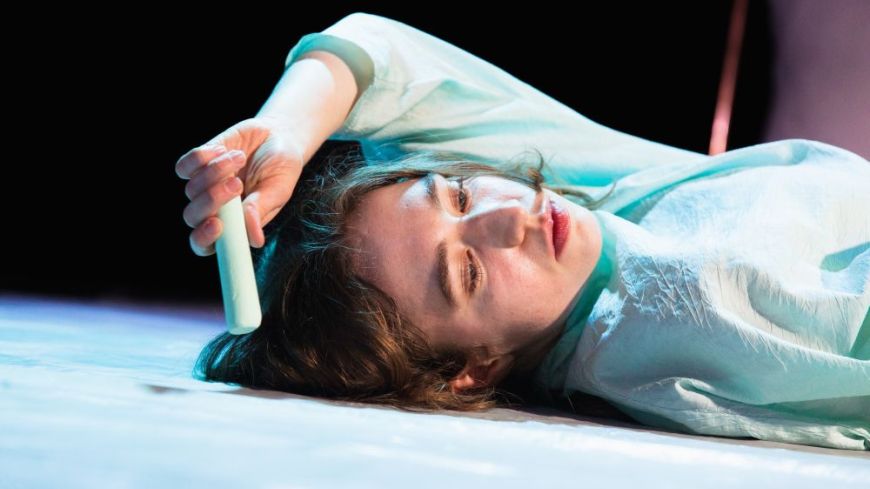
Hyster: noun, Greek for the uterus
This solo play delves into the history of hysteria, dating back to Ancient Greece, the concept of madwomen, ‘the weaker sex’, based on the traditional belief that women were physically and mentally inferior to men.
In the late 19th century, the Salpêtrière Hospital in Paris became the epicentre of hysteria research where Jean-Martin Charcot, a prominent neurologist used hypnosis to induce and study symptoms of strange emotional behaviour. He did not believe they were insane.
Charlotte McBurney plays various roles - Charcot, patient, narrator - to give a feminist perspective on the misogynist treatment of hormonal women. Dressed in what’s akin to both medical scrubs and a strait-jacket, first as narrator, she makes the point of how curious it is that in a hospital there is an operating theatre as if it’s a place of entertainment.
At the Salpêtrière Hospital, Charcot played a kind of ringmaster inviting the public to watch his demonstrations on these incurable women like a circus freak show. He observed four stages of madness in hysterical women, epileptoid, clonic, passionate attitudes, and somnambulism. According to Plato, this was due to ‘a wandering uterus’, in Medieval times they were viewed as witches and Elizabethans described them as madwomen (Ophelia in Hamlet). In the Victorian era, the theory of a ‘wandering uterus’ returned, for which the best cure was smelling salts to calm down these emotionally distressed ladies.
An atmospheric soundscape features recorded voices relating stories, facts and figures. Presented as a partly-dramatised lecture, with humorous anecdotes, we learn about the bizarre remedies such as eating a lemon: switching identity to a patient, McBurney peels the sour yellow fruit as the juice drips on the floor as if munching a sweet orange. She also appears as a vulnerable, confused, lost soul in a fugue-like state, lying down, scribbling a chalk line around her body like a self-portrait, in ever increasing circles.
Perhaps this poignant story should be added to the narrative of this play. In 1938, the poet T.S. Eliot committed his first wife, Vivien Haigh-Wood to a mental asylum where she remained there until her death in 1947. She suffered from heavy periods, pre-menstrual tension, mood swings and migraines which was misdiagnosed as an incurable nervous breakdown.
At the Salpêtrière Hospital, Charcot staged a ‘bal des folles’ – a ball of the madwomen - in which patients dressed up, sang and danced, a cathartic release of their demons.
Portraying these psychotic experiences, Charlotte McBurney gives an electrifying yet quietly contemplative performance: a medical history lesson is transformed into drama to explore the tragic lives of these ‘incurable women,’ incarcerated in an asylum.
‘Sometimes I quite suddenly lose the thread of my life. …. When there are so many things that I do know, I can’t believe that I am mad…. I have been here for six years’.
Showtimes:
30th July – 25th August 2025 (not 12th), 13:35
Ticket prices: Midweek: £13 (£12) Weekend: £15 (£14)
Age guidance, 14
https://www.pleasance.co.uk/event/city-incurable-women

